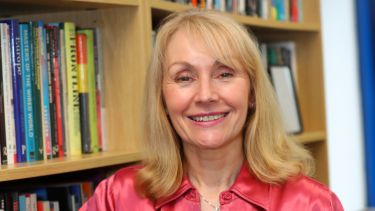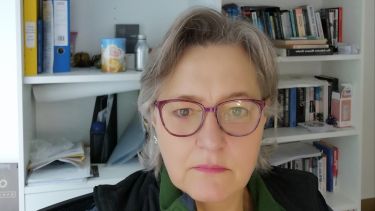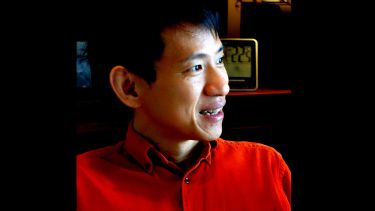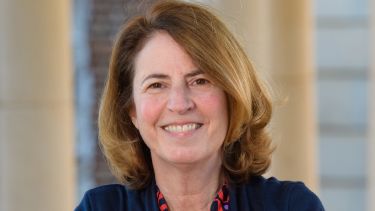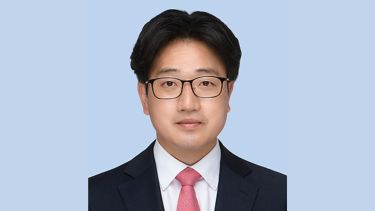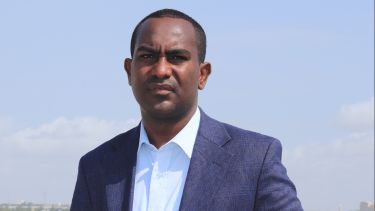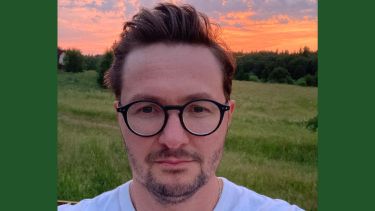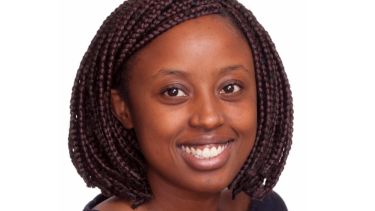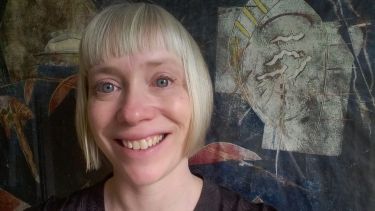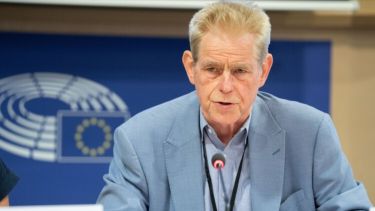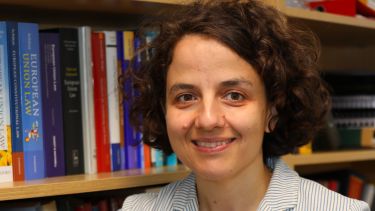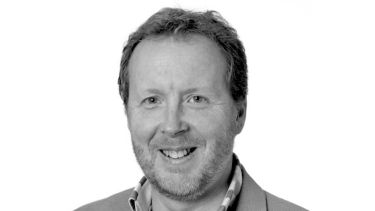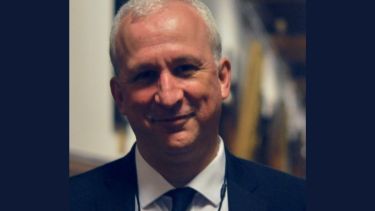Presenters
See below for details of our wonderful line-up of speakers for International Journalism Week.
More about International Journalism Week 2023
Prof Jackie Harrison
Monday 30 October
10.05 - 10.20
Keynote address
Jackie Harrison is the head of the School of Journalism, Media and Communication and Professor of Public Communication at the University of Sheffield and has chaired the interdisciplinary research institute Centre for Freedom of the Media (CFOM) since 2008. As UNESCO Chair on Media Freedom, Journalism Safety and the Issue of Impunity, Jackie promotes in-depth collaborative academic research with centres of expertise, media and NGOs, governments and international bodies on issues of journalism safety, media freedom, freedom of expression, and more. Jackie is a Fellow of the Academy of Social Sciences and has worked with the UK government’s Multilateral Policy Directorate, and the Department for Digital, Culture, Media and Sport, to mention a few.
Dr Janet Harris
Monday 7 November
13.00 - 15.00
Workshop: Reporting war when journalism is under attack
Dr Janet Harris is a nominated documentary producer/director, having worked for many years at the BBC and as a freelancer with experience of working in Iraq, during and after the war. She filmed in Iraq as an embedded director with the British military for the BBC series Soldier, Husband, Daughter, Dad (2005), and for the BBC series Fighting the War (2003). She also worked in post-conflict Iraq for the series Saddam’s Iraq for ITV & Middle East Broadcasting (2004).
Janet was last in Iraq in 2013 to make a documentary for the 10th anniversary of the invasion of Iraq for the BBC This World strand ‘Did My Son Die in Vain’ (2014). She obtained a PhD from Cardiff University in 2012 and now lectures in documentary and international journalism at Cardiff. Her research interests include documentary, journalism, war, Iraq, and conflict reporting. She is co-author of the book Reporting War and Conflict.
Professor Biao Xiang
Monday 30 October
14.00 - 14.50
Talk: Reflexive journalism and popular anthropology in unfree times (online)
Professor Biao Xiang is Director of Max Planck Institute for Social Anthropology in Germany since 2020, and Professor of Social Anthropology at the University of Oxford before that. Xiang’s research addresses various types of migration – internal and international, unskilled and highly skilled, emigration and return migration, and the places and people left behind – in China, India and other parts of Asia.
Xiang is the winner of the 2008 Anthony Leeds Prize for his book Global Bodyshopping and the 2012 William L. Holland Prize for his article ‘Predatory Princes’. His 2000 Chinese book 跨越边界的社区 (published in English as Transcending Boundaries, 2005) was reprinted in 2018 as a contemporary classic, and 自己作为方法 (Self as Method, co-authored with Wu Qi) was ranked the Most Impactful Book 2020. His work has been translated into Japanese, French, Korean, Spanish, German and Italian.
Panel Discussion
Topic: Artificial intelligence (AI) and journalism: including deepfakes and chat GPT
Monday 30 October
15.00 - 16.00
Moderator: Dani Madrid-Morales
Panellists
Dr. Debora Rae Wenger
Dr. Deb Wenger is associate dean and professor for academic affairs at the University of Mississippi School of Journalism and New Media. She is also editor-in-chief of Electronic News, the journal for the Broadcast and Mobile Journalism Division of the Association of Journalism and Mass Communication Educators.
Wenger’s research focuses on the practice of multimedia journalism and its implications for educators. As a former broadcast journalist, she also studies industry challenges and changes in publications such as the Knight Foundation-funded “Local TV News and the New Media Landscape.” Wenger is co-author of two books: Advancing the Story: Journalism in a Digital World and Managing Today’s News Media: Audience First.
She is currently working on a manuscript exploring the prevalence of artificial intelligence in journalism curricula within U.S. journalism programs. Wenger received her Ph.D. from Kingston University.
Professor Damon Kiesow
Damon Kiesow is a digital media pioneer who specializes in aligning community information needs and business strategy in support of sustainable local journalism. He teaches a senior capstone in news product thinking, is authoring the first textbook in News Product Management and is a co-founder of the international News Product Alliance. He is co-founder of the summer pop-up newsroom, the Missouri Information Corps, and creator of an audience and product-focused diversity internship program in partnership with the Institute of Non-profit News.
Kiesow has served as a Knight-McCormick Leadership Fellow, a program run by the Knight Digital Media Center and the Annenberg School for Communication and Journalism at the University of Southern California, in 2011. Kiesow was the Poynter Institute‘s first Digital Media Fellow In 2010-11, where he studied and taught the use of mobile and social tech in newsrooms as well as founded the Mobile Media blog writing daily for Poynter.org.
He is a past board member of the National Press Photographers Association, and the New Hampshire Press Association, was the co-director of the NPPA’s Flying Short Course in 200-2001 and is a former director of the Northern Short Course in Photojournalism.
Dr Jong Sun Choi
Jong Sun Choi is an Advanced Fellow Researcher at the University of Sheffield's School of Journalism, Media and Communication. Since obtaining a doctorate in law in Korea in 2013, Jong-Sun has been lecturing at Hanyang University and Korea University on diverse subjects including broadcasting and communication law, media law, and administrative law. In particular, Jong-Sun has authored academic publications on topics such as the relationship between artificial intelligence (deepfake) and disinformation, freedom of expression on the Internet, securing political neutrality of public broadcasting, protecting broadcasting advertisements and viewing rights, and hate expressions.
He posits that the issue of securing the accuracy and objectivity of media such as news is very important in securing the diversity of democracy and protecting the basic rights of the people.
Abdalle Mumin
Tuesday 31 October
10.00 - 10.50
Talk: Press freedom under attack: focus on Somalia
Abdalle Mumin is a journalist and human rights defender and a fellow at the Centre of Applied Human Rights at the University of York. He is also the secretary-general of the Somali Journalists Syndicate, a local journalists association in Somalia. Abdalle’s work appeared on the Guardian, The Wall Street Journal, The New Humanitarian, Die Zeit and Welt Sichten Magazine as well as BBC World Service among others. Throughout his career, Abdalle has faced multiple instances of targeting due to his journalism and human rights work, with the most recent incident occurring in October 2022 when he was detained in underground cell and persecuted by Somali authorities in Mogadishu. Additionally, in 2015, he narrowly survived an assassination attempt, forcing him to flee into exile. He is also the co-author of the book ‘Hounded: African Journalists in Exile’
Most recently, Abdalle led a group of investigative journalists to compile an extensive research project on the impact of illicit charcoal business in Somalia which fuels the conflict and terrorism in Somalia.
BBC High Risk and News Safety team (HRNS)
Wednesday 1 November
10.00 - 10.50
Talk: Keeping journalists safe where press freedom is under attack
This talk will be led by a member of the BBC High Risk and News Safety team (HRNS). The BBC High Risk team provides specialist safety and security advice and support to all areas of the BBC work globally.
Andrei Goryanov
Wednesday 1 November
11.00 - 12.00
Talk: putting reality together: from exile
Andrei Goryanov is a prominent Russian editor who has led various teams and newsrooms in Russia over the past 25 years. His most recent roles include serving as the BBC Russian bureau chief in Moscow and as the editor-in-chief of Slon.ru, now known as Republic, a highly regarded Russian media outlet known for its news coverage, opinions, and investigative journalism. Additionally, Andrei Gorianov has presented programs at TV Rain, a prominent independent oppositional TV channel, which relocated first from Moscow and then from Riga to Amsterdam. He holds a master’s degree in social theory from MSSES/Manchester University.
Muthoki Mumo
Wednesday 1 November
13.00 - 13.50
Talk: Press freedom under attack: focus on Africa
Muthoki Mumo is the Committee to Protect Journalists' sub-Saharan Africa representative. She previously worked for six years as a journalist with the Kenya-based Nation Media Group, covering a variety of beats for the Business Daily and Daily Nation newspapers. Mumo has a bachelor’s degree from the United States International University in Nairobi and a master’s degree jointly awarded by Aarhus University and the University of Hamburg.
Spotlight: Festival of Social Science
Dr. Tamsin Mitchell
Wednesday 1 November
14.00 - 15.00
Talk: Killing the story: how journalists in Mexico and Honduras survive
This talk is part of this year's Festival of Social Science
Tamsin Mitchell is an ESRC Postdoctoral Fellow with the Centre for Freedom of the Media (CFOM), School of Journalism, Media and Communication, which she joined in October 2022. She completed her PhD in Politics at the University of York’s Centre for Applied Human Rights in 2021, also funded by the Economic and Social Research Council (ESRC). Since then, Tamsin has worked as an independent researcher and consultant, with clients including the European Parliament’s Subcommittee on Human Rights. She has 15 years’ prior experience of working in the international human rights and development sector, including managing programmes of research and advocacy in Latin America and Africa for PEN International from 2007-2016, providing support to writers and journalists at risk.
Centre for Freedom of the Media (CFOM) panel discussion
Topic: The uses and misuses of media law
Thursday 2 November
10.00 - 12.00
William Horsley
Panel moderator
William Horsley is International Director of the Centre for Freedom of the Media (CFOM) at the University of Sheffield. For many years he reported on major world events for TV and radio as a BBC foreign correspondent in Europe and Asia, and as a programme presenter. He is now a leading international advocate for media freedom and on the UK Board of Reporters Without Borders. In 2015 he co-founded a Europe-wide online system of alerts on attacks against independent journalism covering the 47 member states of the Council of Europe.
William writes the international director’s blog on the CFOM website and is the author of the OSCE Safety of Journalists Guidebook (2020) and co-author of the UNESCO Issue Brief on Freedom of Expression and the Safety of Foreign Correspondents (2020). In his work for CFOM William contributes actively to strengthening legal standards, government policies and international actions to protect journalists everywhere who are at risk because of their work.
Dr Irini Katsirea
Topic: Press freedom and regulation in the digital era
Dr Irini Katsirea is Reader in International Media Law at the University of Sheffield. She joined the School of Journalism, Media and Communication in September 2015. Before her appointment at the University of Sheffield, Irini was Senior Lecturer in Law at Middlesex University, London. She has served as Visiting Fellow at the Institute of Advanced Legal Studies and is a member of the Athens Bar. She holds a First Examination in Law from the Free University of Berlin, an LLM in European and International Trade Law from the University of Leicester and a PhD from Magdalene College, Cambridge.
Professor Philip Leach
Philip Leach is Professor of Human Rights Law at Middlesex University in London, and a human rights consultant and solicitor. Until March 2022 he was Director of the European Human Rights Advocacy Centre (EHRAC) also based at Middlesex University, which litigates human rights cases arising in Russia, Ukraine, Georgia, Azerbaijan and Armenia. He researches and publishes widely in the field of international human rights law and practice.
He is author of ‘Taking a Case to the European Court of Human Rights’, 4th ed., Oxford University Press, 2017 and ‘Parliaments and the European Court of Human Rights’ (co-authored with Dr. Alice Donald), Oxford University Press, 2016. Philip is Co-Supervisor of the Turkey Human Rights Litigation Support Project and Vice-Chair of the European Implementation Network (EIN). He was a member of the Independent Advisory Panel on Deaths in Custody from 2009-2015 and a member of the Independent Review into Self-inflicted Deaths in NOMS Custody of 18-24 year olds from 2014 to 2015. He was appointed specialist Adviser to the Joint Committee on Human Rights for its inquiry into mental health and deaths in prison in 2016-2017.
David Banisar
David Banisar is a visiting Senior Fellow at the London School of Economics and a former Senior Legal Counsel at ARTICLE 19. During his time as a legal counsel, he led the organisation’s work on transparency and information rights, including the right to information, environmental protection and sustainable development. He has worked in the field of information policy for over 20 years and has authored numerous books, studies and articles on freedom of information, freedom of expression, media policy, whistleblowing, communications security, and privacy and data protection. He is vice chair of the UNCAC Civil Society Coalition and co-chair of the UK BOND Transparency group.
David was previously Deputy Director of Privacy International and has also been a research fellow at the Kennedy School of Government at Harvard University, a visiting fellow at Stanford’s Center for Internet and Society and the University of Leeds, and Policy Director of the Electronic Privacy Information Center in Washington, DC. He has also served as an advisor and consultant to numerous organisations, including the Council of Europe, the Organisation for Security and Co-operation in Europe, the UN Development Programme, and the Open Society Institute. He has a Juris Doctor in law and public policy from The Columbus School of Law, The Catholic University of America in Washington, DC.
He tweets at @a19right2info.

